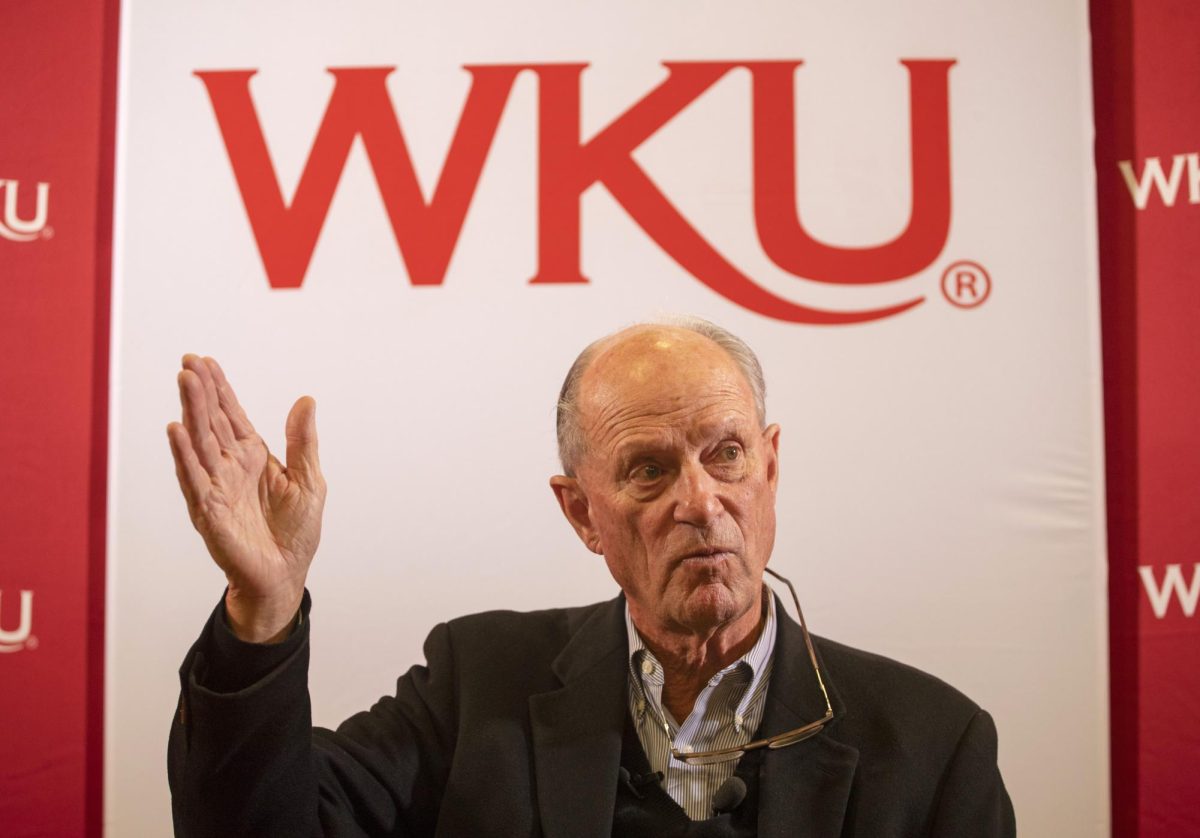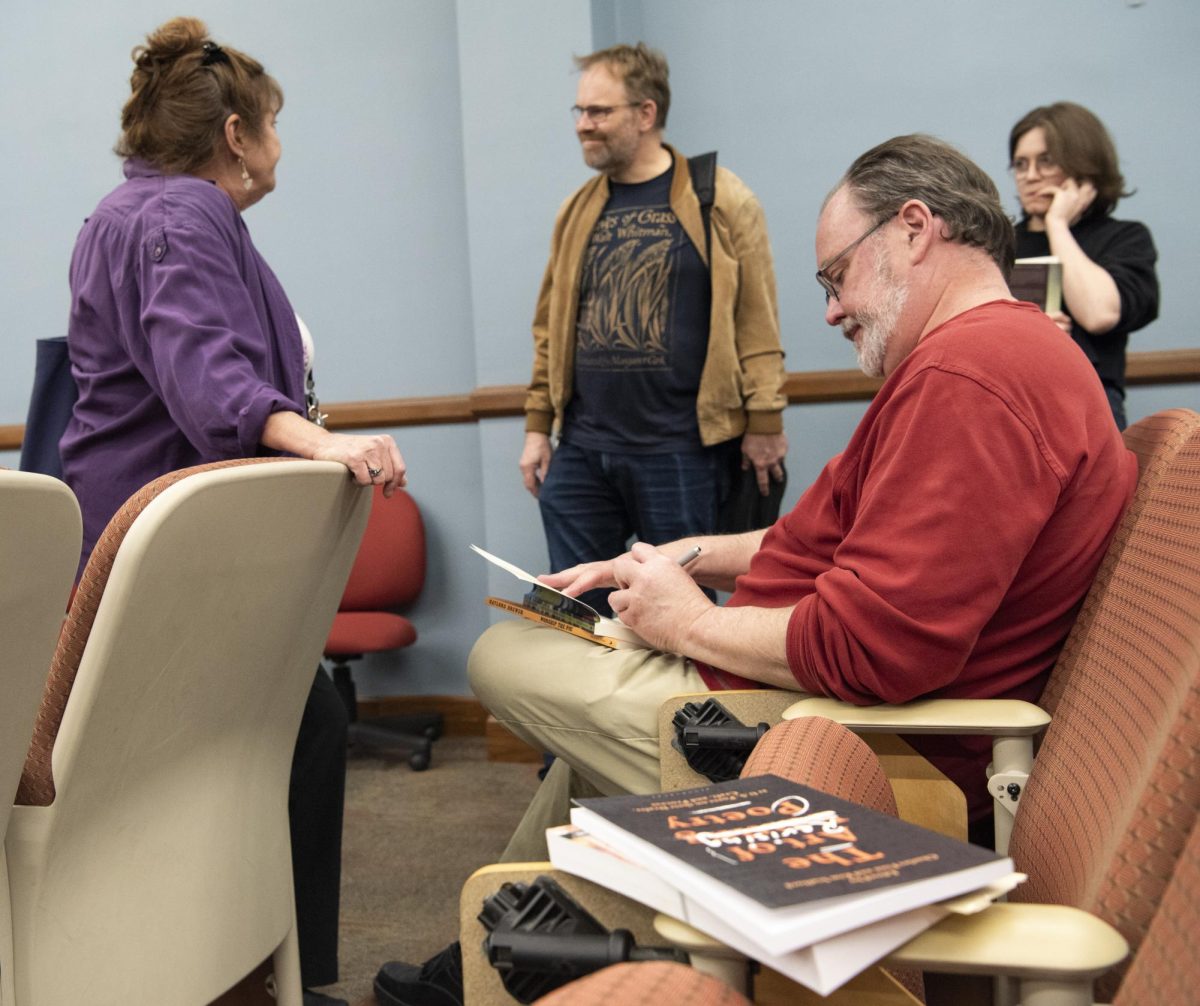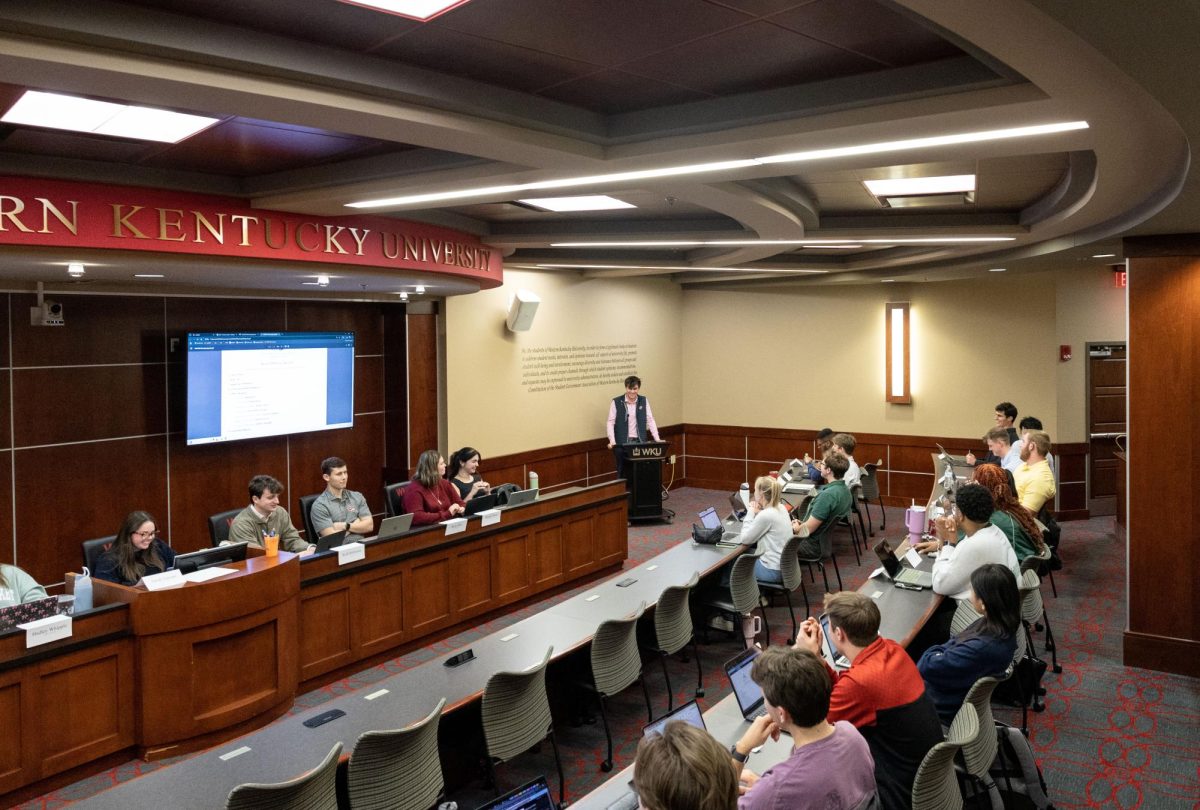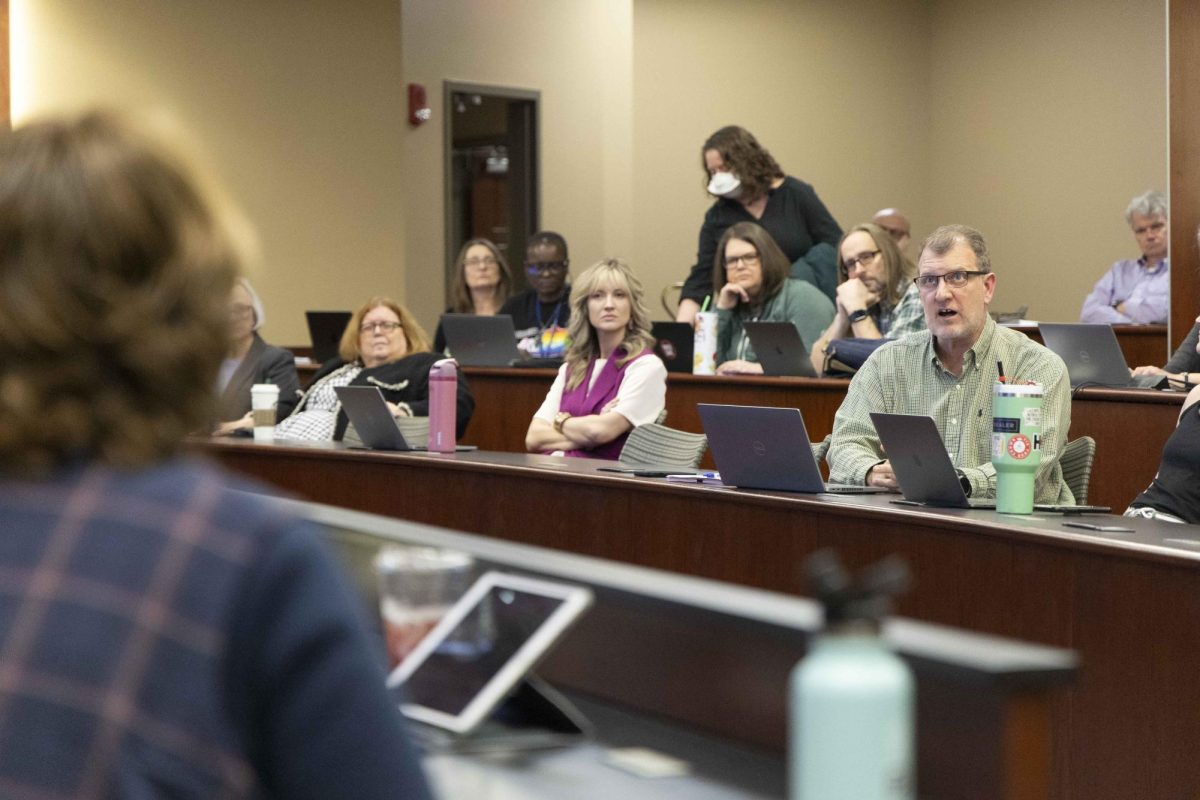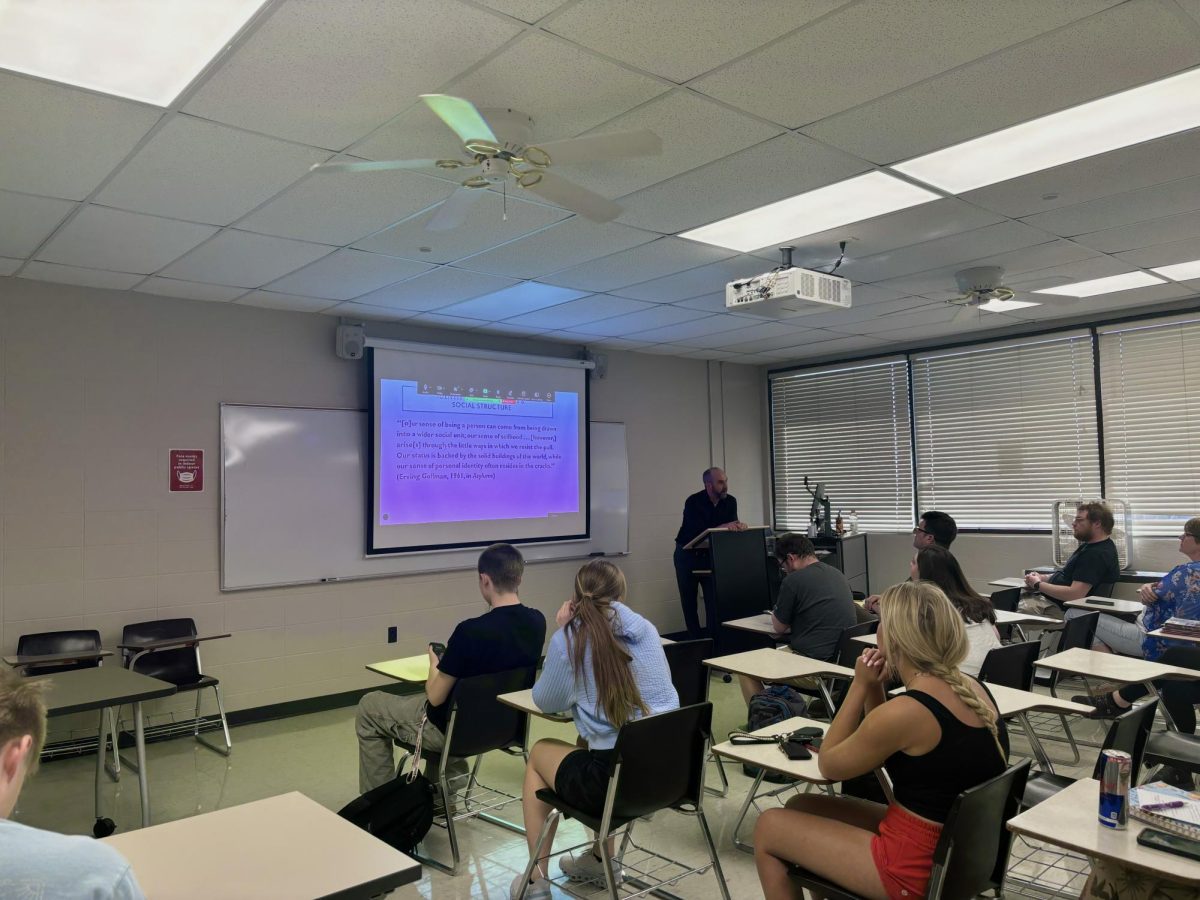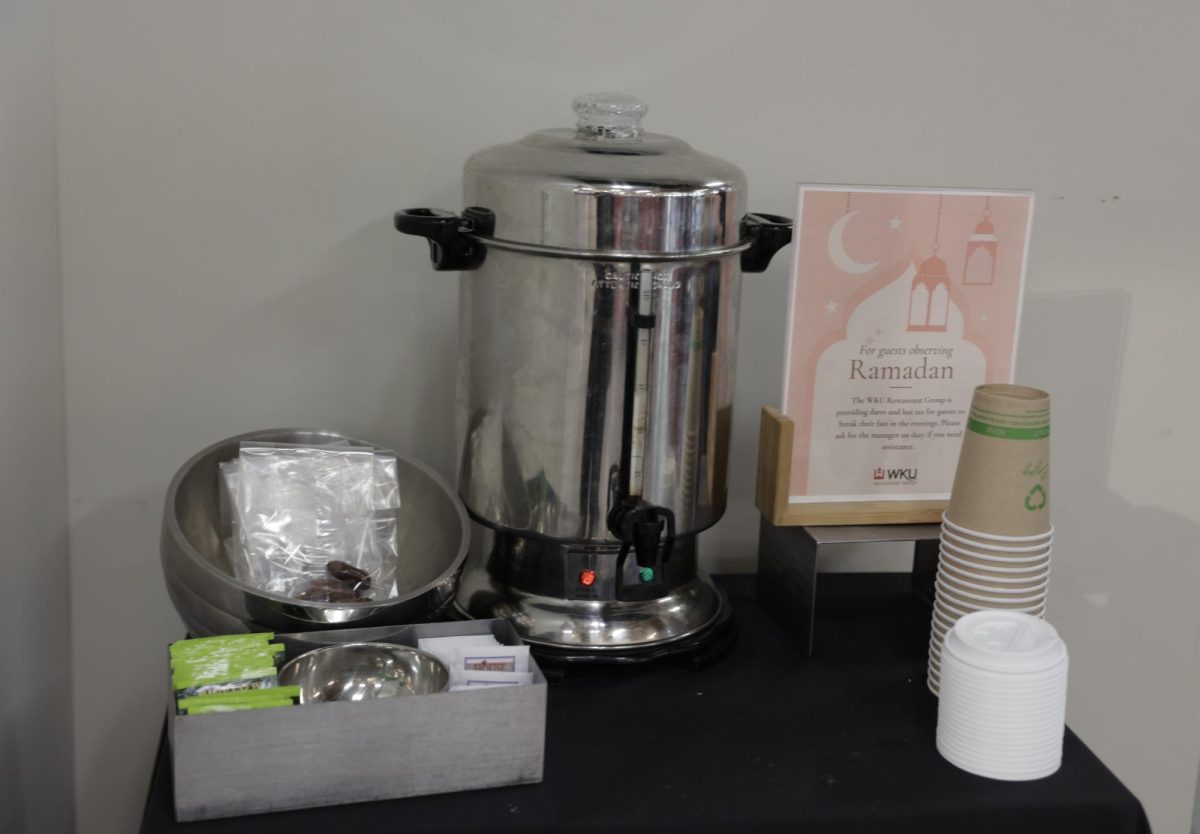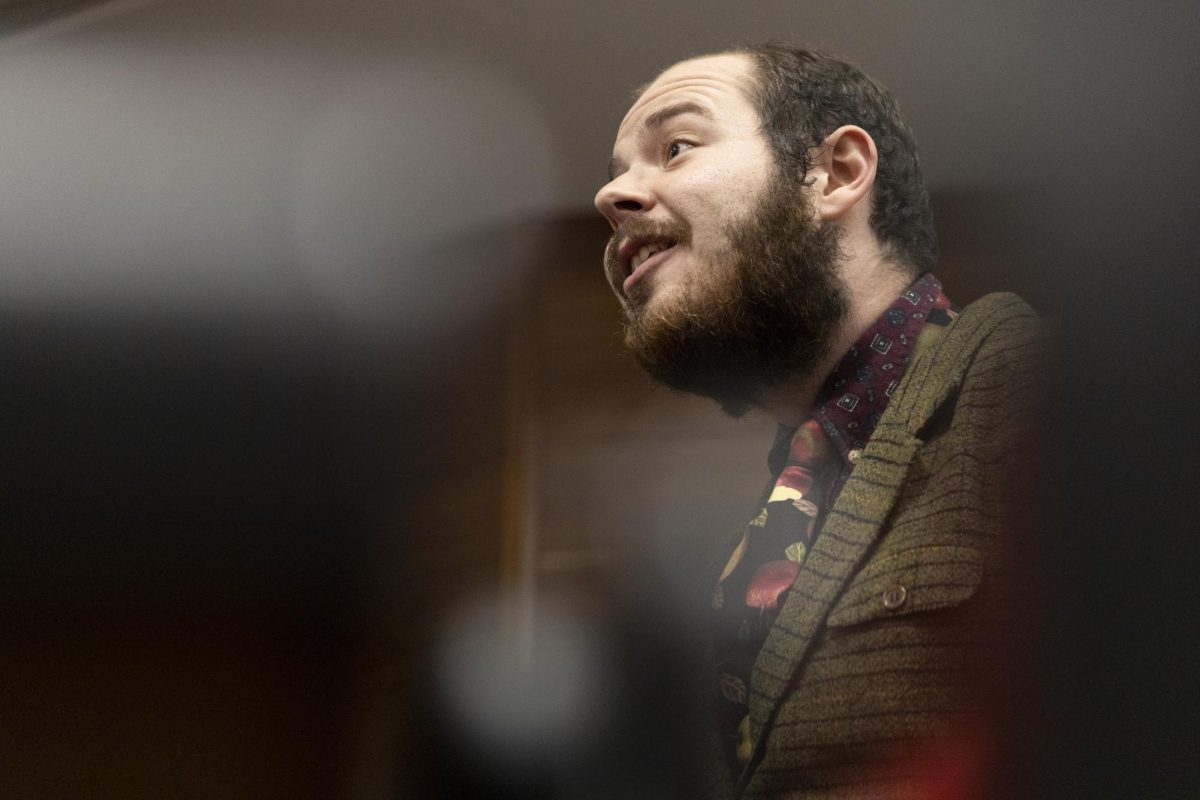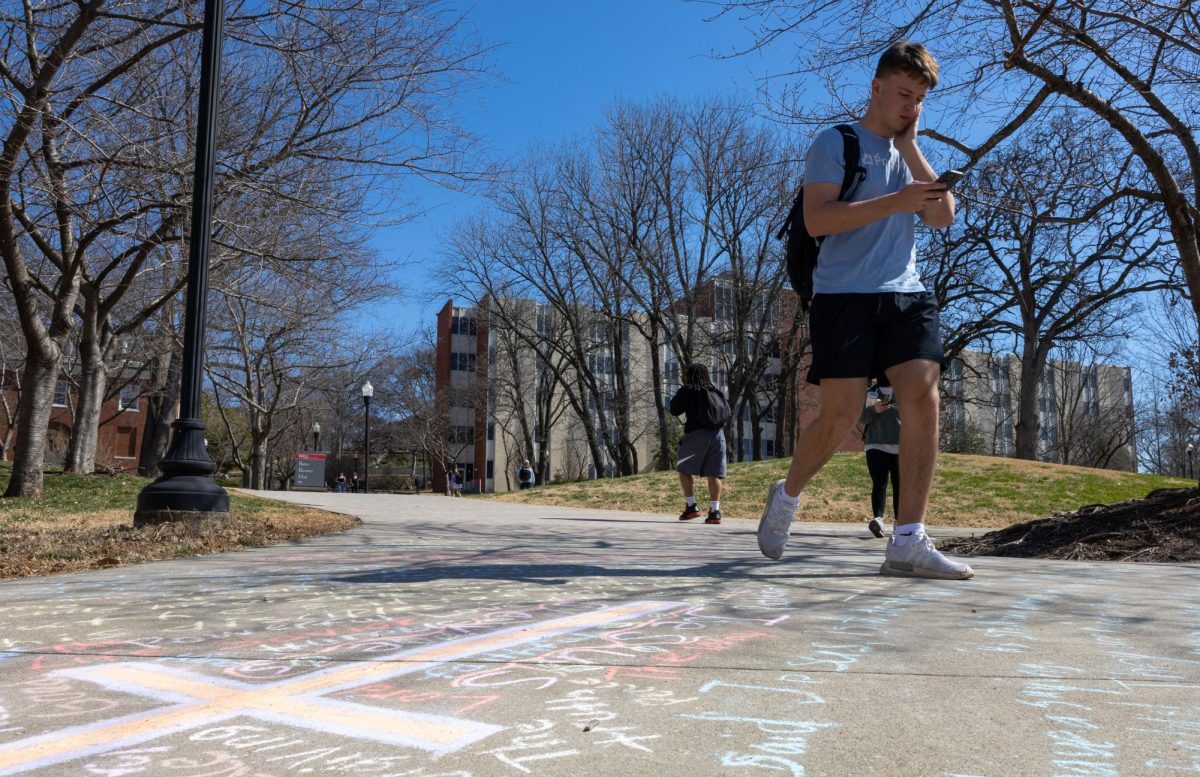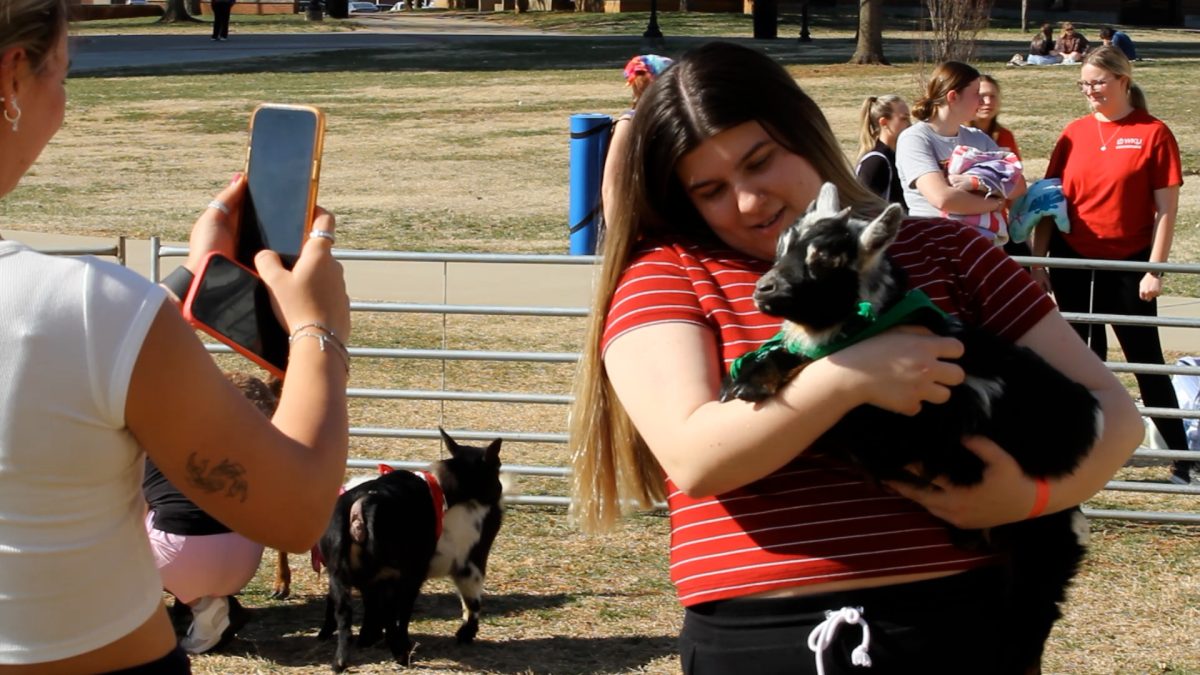WKU hosted Robert Ballard, oceanographer, marine geologist and deep sea explorer, as the first speaker in the Presidential Speaker Series on Tuesday night.
WKU President Timothy Caboni brought Ballard to Van Meter Auditorium for the event, and he revealed the depths of his career through compelling stories. In the event “Deep sea exploration: past, present, and future”, Ballard provided students with a discussion of his extensive career and reflected on his most notable discoveries.
“I am able to go where no one has ever been,” Ballard said, “and it’s a great thrill.”
Ballard is a current professor of oceanography at the University of Rhode Island and has an extensive background in marine geology and oceanic archaeology. Ballard has participated in over 165 explorations and has been awarded 23 Honorary Doctorates. President George W. Bush presented Ballard with the National Endowment for the Humanities Metal in 1997 and he has been noted by both the National Geographic Society and the Explorers Club.
Ballard was born in Wichita, Kansas and had a dream to explore the deep sea since watching “20,000 Leagues Under the Sea” as a child. He has become an advocate for children following their dreams after the success that followed him.
“I think it’s critical for kids to follow their passions,” Ballard said. “You should never laugh at a child’s dream, it’s the cruelest thing you could do.”
Ballard struggled with dyslexia for his entire life and felt the largest effects during his youth.
“I was told I was stupid when I knew I wasn’t, and I got locked down a lot, academically, so to speak,” Ballard said. “Although I did get good grades, I had to work really hard to get them.”
Ballard felt that his passion for the sea was his biggest reason to continue with his dreams during rough periods of his life.
“I’ve always felt that failure is the greatest teacher you’re ever gonna meet and whatever knocks you down, it’s your passion that gets you back up,” Ballard said. “I felt that if I just stayed in the game, sort of the tortoise out running the rabbit.”
His family relocated from Wichita to San Diego where he had an outlet to the ocean. He recalled getting on his bicycle as a kid and immediately riding to the ocean shore. There, he would investigate tidal pools because they changed every 12 hours and there was something new every time he went to explore.
San Diego was where he first spent time on a submarine at a local submarine base. He would later go on to become a naval officer and would spend the majority of his time on submarines.
He poured his passion for children following their dreams into the “Jason Project” that he curated in 1989 to provide children the opportunity to go on explorations of their own. The program inspires kids to pursue higher education in science, technology, engineering, and math.
Ballard’s curiosity carried him throughout his career and said that the unknown continues his passion for exploring the deep sea.
“You can’t miss making discoveries if you’re the first set eyes on the target,” Ballard said. “So yeah, I think that my driving engine is the unknown.”
The unknown is exactly what led Ballard to the one of the most famous discoveries of his career, unveiling the wreck site of the “RMS Titanic.”
Ballard discovered the Titanic in 1985 while on one of his explorations.
“When I found the Titanic and I came home, naturally National Geographic had me on every talk show you could imagine,” Ballard said.
Ballard said that he could not have found the wreckage without the help and support of his team.
“I didn’t find the Titanic, we found the Titanic,” Ballard said. “I cannot do what I do without an amazing team of individuals. Don’t wander around out there by yourself, have an amazing team of people.”
The value of a team is something that Ballard has found important to carry with him throughout his career.
“I’m sitting with you right now and they’re working like crazy and I’m fully confident they’re doing really well,” Ballard said. “It’s really about forming teams, and if you can hand it off, then you can dream up something else.”
Ballard values the amount of diversity his team currently has in comparison to when he first created a team.
“When I went to see my first research ship, the only woman was made out of wood on the bow,” Ballard said. “There was virtually no diversity.”
Since then, his team has experienced a major sweep of diversity and now contains an array of individuals.
“I’m very proud to say that my team has every face of America, every pronoun of America, every kind of American is on my team,” Ballard said. “We have everyone in the game because America has very stiff competition.”
Ballard coming to speak on campus proved to be successful, and an occasion gathering interest from students across campus.
“I’m student government Executive Vice President and the Executive Branch actually got invited to the banquet and the speaker tonight,” junior Annalise Finch said. “We all came out to support the event and we’re all really excited.”
Finch had a general curiosity of her own when coming to the event.
“I’ve always been really interested in things getting discovered so I’m really interested in everything he has to say,” Finch said. “It’s obviously a really good turnout.”
Fletcher Terry, senior mechanical engineering student, found similar curiosity in Ballard’s presentation.
“I’m a mechanical engineering student and thought it would be a unique experience to be here and to grow myself intellectually,” Terry said.
Curiosity will fuel Ballard’s explorations moving forward, and he has not lost his passion for making discoveries.
“I love the thrill of making a discovery,” Ballard said. “I’m curious about everything. I want to know why I’m here and where I’m going and what’s going on.”
News Reporter Maggie Phelps can be contacted at margaret.phelps370@topper.wku.edu
Additional reporting was done by Editor-in-Chief Alexandria Anderson. Anderson can be reached at alexandria.anderson337@topper.wku.edu

